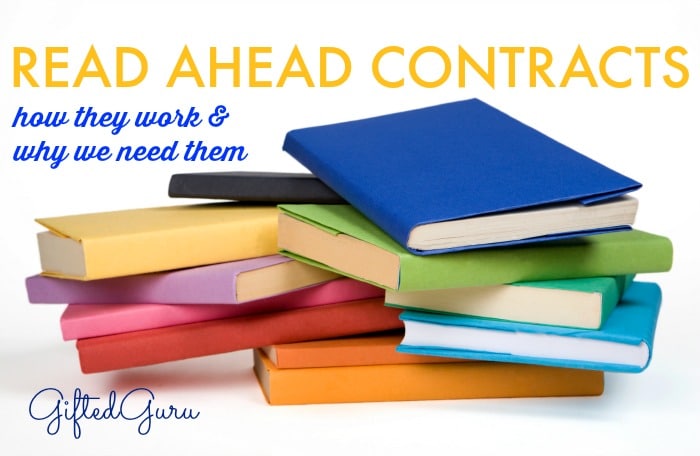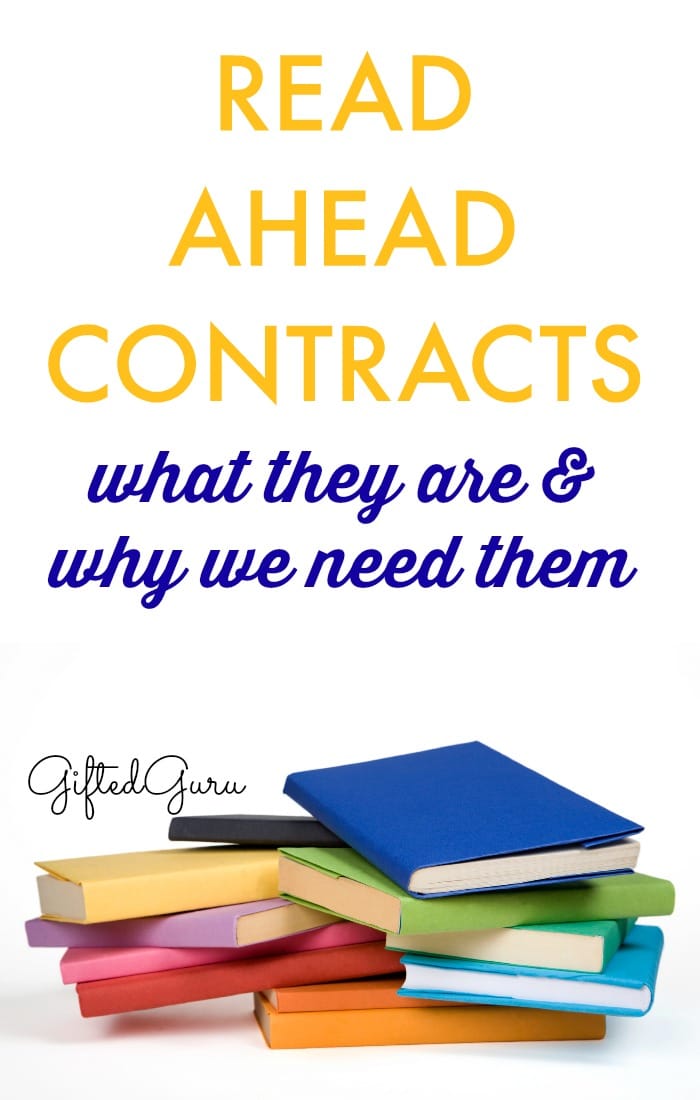
Reading is one of the great joys of life, yet for gifted children, reading can become a tedious exercise, fraught with difficulty and frustration.
This happens when they are forced to follow along in class while others read aloud. You know how you feel when you’re stuck in traffic and your car wants to go 60 mph, but you can only go 15? Yeah, it’s like that.
I mentioned it in the Top Ten Ways to Annoy a Gifted Child, and my gifted son truly believed me when I wrote that the Supreme Court really had ruled it cruel and unusual punishment.
I personally remember the dynamic well. I clearly remember being forced to listen to peers reading from a textbook aloud and reading the text to myself six or seven times while they read and thinking, “Why am I even here? This is the biggest waste of time imaginable.”
It breeds attitudes and behavior in manner of Ferris Bueller. That is not hyperbole.
I’m accepting these ideas as facts:
- Reading is more than decoding and pronouncing. Children who can read well above their grade level may not be able to analyze at that same level.
- Students who can read and comprehend and analyze far above the level of their grade should be allowed to progress in their own reading development.
- Teachers can expect that advanced readers whose need to read at their own skill level is being met will not create difficulties for the class.
- Reading should never be used as either punishment or reward.
So what’s the solution to the problem of a child who reads like they’re going to start burning books tomorrow and an educator who has a whole class to teach and needs to make sure that Speed Reader is not only reading but also is able to do the analysis necessary and participate in discussion, all part of being a scholarly reader?
The solution, my friends, is a Read Ahead Contract.
Read Ahead Contracts save highly able students’ sanity (and their teachers).
How does it work?
The student demonstrates readiness through assessment or observation. Once that has been established, the student and teacher sign a Read Ahead Contract.
I’ve got them for you, don’t worry.
Here’s the gist of it:
- The student agrees to read the material being read in class on his/her own thoroughly enough to discuss it. Skimming is not reading. This is not the time for a lick and promise, as my Grandma used to say.
- The student agrees to avoid spoilers (No telling the class at recess that A Day No Pigs Will Die does not end well.).
- The student may not participate in predictions (“So, class, what do you think will happen next?”).
- The student will suggest three alternate things to read or work on while the class is reading aloud (I’ve got suggestions below). The teacher will choose from the three.
- The student agrees to participate in the class discussions at a pre-determined signal from the teacher without any sighing, acting superior (“I can’t remember because it’s been soooooooooo long since I read it”) or argument.
- In exchange, the teacher agrees that the child will not be forced to endure the torture that is reading at the same pace as everyone else.
The contracts can be for periods of time or for the duration of time the class is reading a book or text.
Set a time for reflection. Is it working? If not, what’s not working and how can that be fixed?
So simple, yet so powerful. This does not take the teacher any additional time. It guarantees the student won’t have gaps in understanding and analysis. It makes the educator a partner, rather than a flagman waving a caution flag at Speed Reader.
What can the student do instead of reading at the slower pace? Here are just a few ideas:
- Read one of the Excellence in Reading lists from the Mensa Foundation.
- Read the teacher’s fave books from when he/she was a kid.
- Write letters to authors.
- Write a book.
- Go to a class for younger children and read with/to struggling readers.
- Read appropriate titles from the Library of Congress’s Books that Shaped America list.
- Watch author webcasts from the National Book Festival.
- Create questions about books.
- Read magazines about books.
- Read books that match his/her interests from the Library of Congress lists of books sorted by interest.
- Explore websites for young readers like GuysRead, Read Kiddo Read, or one the sites Esme Codell lists.
- Listen to an audio book while drawing.
I hope you’ll let me know if you try it.






